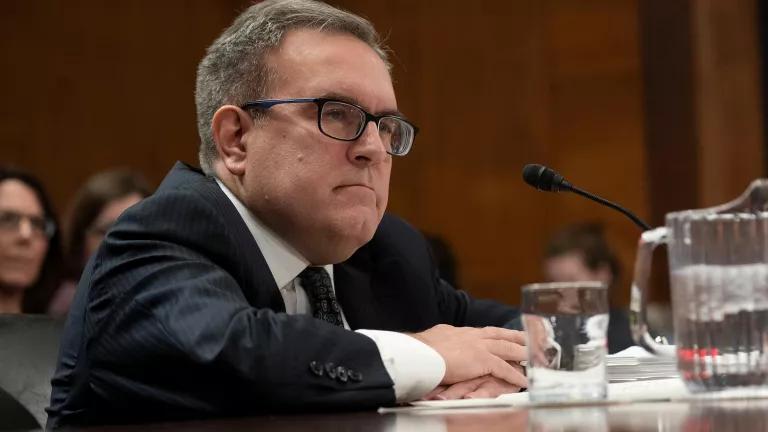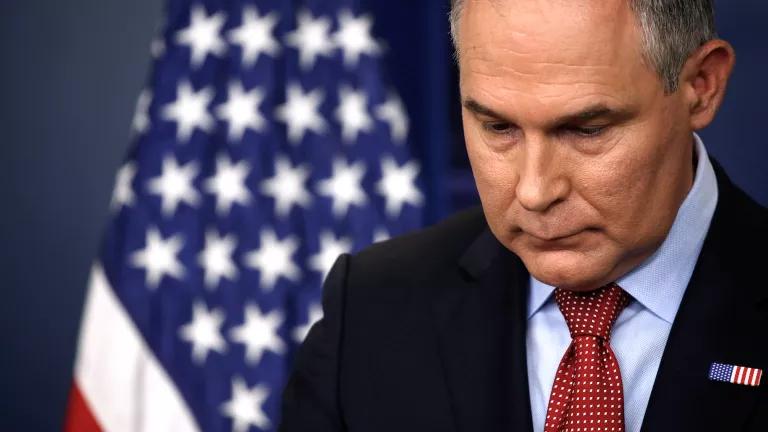David Bernhardt Takes Over as New Interior Secretary

If his past four months as the department’s acting secretary are any indication, our public lands, oceans, and wildlife are in trouble.
In bad news for our wilderness, wildlife, and climate, the Senate confirmed David Bernhardt as the new secretary of the U.S. Department of the Interior with a vote of 56 to 41. “Bernhardt is far too conflicted to lead this agency, given his track record of advocating for oil and gas, mining, agribusiness interests, and other polluters,” said John Bowman, managing director of government affairs at NRDC.
Bernhardt, who served as the agency’s acting secretary since the scandal-ridden resignation of Ryan Zinke, quickly picked up where his predecessor’s pro-polluter agenda left off. “Bernhardt has made no secret of his mission to attack our lands, wildlife and waters,” Bowman said.
Indeed, in his four months as acting secretary, Bernhardt worked to dismantle a landmark sage grouse conservation plan in the West, block publication of independent science on toxic pesticides, and rubberstamp a rushed environmental review of the long-opposed Pebble Mine in Alaska’s Bristol Bay.
Bernhardt’s industry-friendly positions are no surprise. He previously pushed to open up the Arctic National WIldlife Refuge to oil and gas development under the George W. Bush administration and later worked as a lobbyist for Big Oil and Big Ag. Bernhardt is expected to continue boosting fossil fuel development across our public lands and along our coastlines, all while rolling back protections for the climate and endangered species. As Bowman said, “he’s uniquely unfit to become our next secretary of the Interior.”


